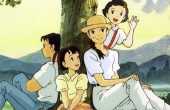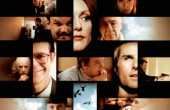Matchbox
A lover of literature and film. My bookshelves are lined with Mishima, Atwood, McCarthy and the inimitable Lovecraft.
Contributor I
- Plebian Penman
- Lurker
- Sharp-Eyed Citizen
- ?
- Articles
4 - Featured
3 - Comments
29
- Ext. Comments
4 - Processed
3 - Revisions
3
- Topics
5 - Topics Taken
1 - Notes
13
- Topics Proc.
14 - Topics Rev.
2
- Points
872 - Rank
173 - Score
408
Latest Articles
Latest Topics
The Fictional Towns of LiteratureR.K. Narayan's Malgudi, Faulkner's Yoknapatawpha County, and of course, L. Frank Baum's enchanting Oz. These fictional places imagined by prolific writers possess great character, and ultimately reflect the author's mindset, intention and desires. A greater understanding of each of these places is pieced together bit by bit through every engaging story written, and eventually come to represent different things in the ways that they are perceived by us, the readers. Interesting questions to perhaps ask would then be: what was the intention of the author in creating such an intricate or elaborate world (all three are depicted beautifully drawn maps) and how did people perceive such fictional towns at the time, as well as what these towns eventually came to represent.
|
Confronting the Unpleasant in our Literary FiguresOn the 5th of May, writer Junot Diaz was confronted by author Zinzi Clemmons, an individual whom Diaz had succeeded in forcibly kissing years earlier. Several other individuals have since come forward to testify and solidify Diaz's sexual misconduct allegations, and Diaz has since retreated from the public eye by stating that he "takes responsibility" for his past. Since then, Mary Karr reminds us of the sexual misconduct of deceased postmodern writer David Foster Wallace, and more importantly brings to light the public's indifference toward the matter. It's no surprise that our literary figures weren't morally upstanding individuals: Somerset Maugham's characters and stories exoticise the supposed "orient" in a rather unpleasant manner, Hemingway was a noted misogynist and sexist, and Bukowski has a history of quotations that aren't sympathetic to the female sex. After last year's fiasco in the entertainment industry, I'd like to draw us back to the world of literature and fiction. What parts do we, as readers, consumers and therefore enablers of these individuals (alive or not) play in such a changing climate? Should we say nothing in the tradition of respecting the voices fostered in the creation of what we consider "good art", even if that means reproducing a male-centric perspective for the coming generations? Or should we condemn such works on the basis that they promote unsavory attitudes towards groups of people, and therefore bear the artistic cost?
|
The Opposite of Oblivion: How Does Attaining the Nobel Prize Affect Productivity?The topic so far is merely a question in my head, and there are things too that I am uncertain about, such as whether this fits under writing or literature… But what I hope for someone to explore is precisely what does the attainment or possession of the coveted position bode for the future of the writer? For many authors, the Nobel Prize in Literature is the ultimate, if not the most significant and most revered, position one can attain. It is a validation of one's place in history, a literal title that translates into the opposite of oblivion, instead, it is the acknowledgment that one has made great contributions to the development of literature, whose legacy will be set in stone and whose name will not be so easily forgotten. In many of our minds, the awarding of the Nobel Prize comes late in the author's life: it is the crowning achievement of decades of hard, continuous work, the culmination and recognition of multiple published books, and the result of authorial evolution, progress, and contribution. My question then is, what happens after? Jean-Paul Sartre, who famously declined the Prize in 1964, continued working tirelessly on his "Critique of Dialectical Reason" until his passing. William Faulkner (who also hated the fame that the Prize brought), after winning it in 1949, wrote two landmark works after, A Fable (1954) and The Reivers (1962). There aren't many examples of writers who have continued their intensity of producing works after the awarding of the Prize, but anyone who takes up this topic could look at those who did, the nature of the works after the winning of the Prize, and whether the attainment of this revered position has positively or negatively influenced the legacy of the writers.
|
Can Auteurism Exist in Video Games?In 1954 François Truffaut coined the term 'auteur' in his groundbreaking work "Une certaine tendance du cinéma français", a descriptive that would subsequently be used to describe directors whose style or approach is so idiosyncratic that their films would be easily recognized (See Wes Anderson, Scorsese, Charlie Kaufman and the Coen Bros). But could this perspective and theory be possibly applied to the video game world? We don't hear much of names in the video game industry, but the ones that come to the top of my head include Hideo Kojima, Shigeru Miyamoto, Toby Fox (for his sheer creative control in Undertale), Ken Levine (of the Bioshock games) and Sid Meier, who has built his own empire from his Civilization games. So my question is: is it possible to consider such visionaries auteurs? Can their games be considered solely products of their own unflinching vision? Or is another step in order: wherein we ought to consider companies/collectives as auteurs in their own right?
|
Portrayals of Omnipotence and Ascension in Japanese AnimationPrincess Mononoke (Miyazaki), Paprika (Kon) and Akira (Otomo) were landmark films in the development of Japanese animation in the late 1900s and early 2000s. Otomo's magnum opus has had an unprecedented impact on science fiction. Miyazaki's groundbreaking work established his reputation as Japan's most skilled animator. Kon's film, on the other hand, is a showcase of his inimitable style paired with his excellent editing, detailed in a video by Every Frame a Painting. (Spoiler Alert)
|
Latest Comments
| The 21st Century's Most Meaningful Animated Shorts | |
Hi Jane, I think you could search online for some of his films. Otherwise, you may have to get your hands on one of the dvds. Gkids has a full collection of all Ghibli films, if i’m not wrong. | An Isao Takahata Retrospective |
Thank you for your kind words, Amyus! Keep up the great work too, its wonderful watching this community grow with talented writers such as yourself. | The 21st Century's Most Meaningful Animated Shorts |
Thank you Sarai. It’s great to hear you’ve enjoyed it, and I have great respect for the constant contributions you make to this site. Your articles are of wonderful quality and I’m certainly looking forward to your next one. 🙂 | The 21st Century's Most Meaningful Animated Shorts |
thank you for the kind words. I had initially titled this article the underrated shorts of the 21st century, because I intended to explore the more obscure animated shorts that weren’t getting the attention they needed. I’m glad to be able to introduce them to people interested and passionate about animation. | The 21st Century's Most Meaningful Animated Shorts |
Glad for your kind words, Keane. Hope you enjoy them all. I wish I could experience the eagleman stag as a wide-eyed fifteen-year-old again, and be confronted with its endearing and experimental nature that opened my eyes to the potential of the short. | The 21st Century's Most Meaningful Animated Shorts |
I’m delighted you’ve had such a visceral experience to this particular work. I felt it fitting as the final entry because it does so many things I feel the contemporary animated short has neglected. It’s so simple, too. Sagan’s words echo throughout time and space, and has only grown in relevance, so it is no surprise that Wernquist’s visuals have risen to match his accompanying text. It’s truly an outstanding short. | The 21st Century's Most Meaningful Animated Shorts |
Hahahaha I suppose that’s also because the Japanese, more than anyone else, seem to tend toward the strange and weird in their media. I am glad to have examined Yamamura’s Country Doctor though, it isn’t by any means easily digestible, but it presents an interesting adaptation nevertheless. | The 21st Century's Most Meaningful Animated Shorts |




Thank you for the kind words, Manny. I think i might create a letterboxd list sometime soon, and I’ll send you the link once it’s up and running.